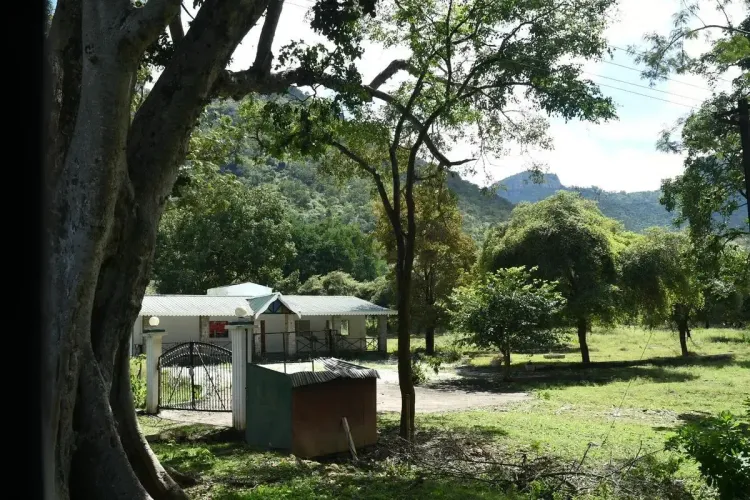Is There a Crackdown on Illegal Homestays and Cottages in TN's Nilgiris?

Synopsis
Key Takeaways
- 854 properties identified for violations in the Nilgiris.
- 23 buildings have already been sealed.
- Udhagamandalam has the highest number of cases with 247 notices.
- Authorities are committed to protecting the environment while enforcing laws.
- The process is meant to be transparent and fair.
Chennai, Oct 1 (NationPress) The administration of the Nilgiris district in Tamil Nadu is advancing to the next stage of its initiative to close down unauthorized homestays, bed-and-breakfast establishments, and illegally built structures, as per directives from the Madras High Court.
After several months of inspections and legal notifications, officials have embarked on a second phase of enforcement.
District records indicate that 854 properties have been flagged for violations, which include operating accommodation services without the required approvals and exceeding sanctioned construction limits. So far, 23 buildings have been sealed, with an additional 28 expected to be closed in the upcoming weeks.
This operation spans all municipalities and town panchayats in the Nilgiris, with Udhagamandalam reporting the highest number of cases — 247 notices have been issued there alone.
Officials explained that the process is intentionally drawn out to uphold legal protocols.
Once municipal commissioners and town panchayat officials locate non-compliant buildings, formal notices are sent to the owners. Each property owner is allotted several months to respond and provide necessary approvals, including sanctioned building plans and the essential Form D license under the Tamil Nadu Public Buildings (Licensing) Act, 1955. If the required documents are not submitted or are deemed invalid, the property will face sealing.
Inspections have uncovered significant irregularities. Numerous buildings were found to be constructed beyond the approved floor area, sometimes extending by thousands of square feet over sanctioned limits.
Numerous guest accommodations have been functioning without fundamental clearances, raising concerns regarding safety and infrastructure.
This crackdown is a direct result of a Madras High Court mandate to enforce building and tourism regulations strictly in the Nilgiris, a delicate hill district where uncontrolled development has often been associated with landslides, water shortages, and pressure on civic amenities.
Officials assert that their actions aim to ensure compliance with the law while protecting the fragile ecosystem that draws tourists to the area.
In the meantime, some members of the local homestay and bed-and-breakfast association have contested the sealing initiative in court. However, the Madras High Court has permitted the district administration to proceed with its actions pending final verdicts.
Officials assure that the process will be transparent and equitable, but emphasize that non-compliant structures cannot be permitted to operate.
With the latest round of closures on the horizon, the Nilgiris is poised for stricter enforcement of building safety and tourism regulations.









